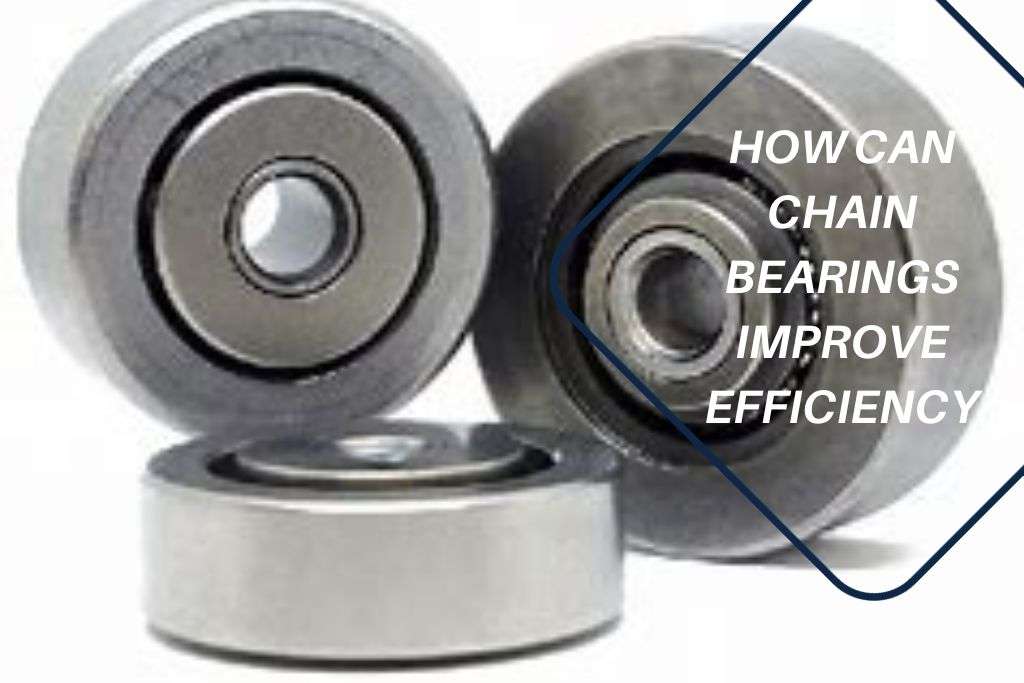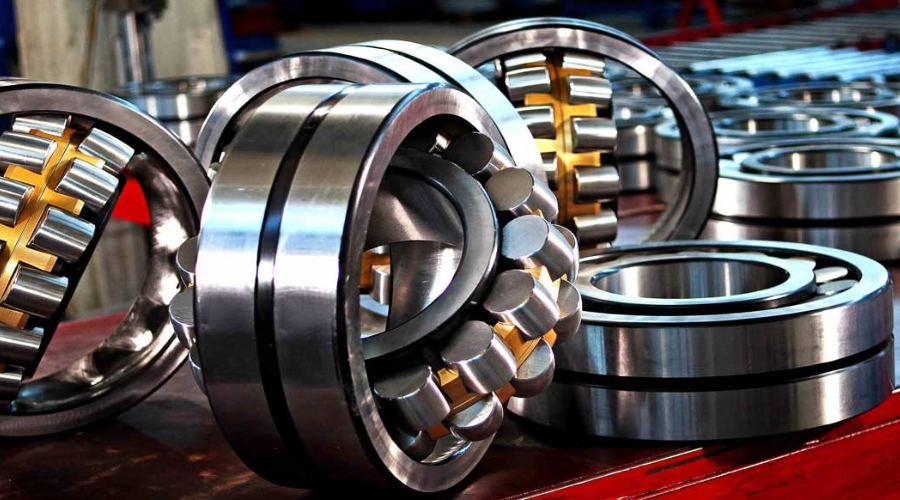
Mar 28,2024
Imagine a machine straining under the weight of its workload. The chain groans, and the motor sputters – a symphony of wasted energy. Now, picture the same machine running like a well-oiled machine (pun intended!). The chain glides effortlessly, and the motor purrs with newfound confidence. This transformation? The magic of chain bearings.
The arch-nemesis of efficiency is friction. It's like trying to run a marathon in shoes caked in mud. Chain bearings act as friction's kryptonite, minimizing this energy-sapping force between the chain and its track.
Well-lubricated chain bearings emit a satisfying hum, a testament to their smooth operation. Gone are the days of grinding chains and overworked motors.
Imagine pushing a heavy cart with well-oiled wheels. Chain bearings reduce resistance, allowing your machine to operate with less effort, translating into a power surge for your actual task.
Chain bearings are more than just friction tamers; they're efficiency warriors with a diverse arsenal:
Chain bearings empower your motor to work smarter, not harder, by minimizing friction. Imagine a car using less fuel to cruise down the highway – that's the efficiency gain you'll experience.
Reduced friction reduces wear and tear on both the chain and the bearing. Picture a machine operating for years with minimal downtime for repairs or replacements.
Chain bearings ensure the chain stays on track, preventing it from jumping off or wearing unevenly. This translates to smoother operation and less power loss from misalignment.
Many chain bearings boast pre-lubrication or sealed designs, minimizing the need for constant attention. Imagine spending less time on maintenance and more time keeping your machine productive.
Chain bearings aren't a one-trick pony. Different applications demand specialized features:
Speed Demons Rejoice: For conveyor belts or packaging machines that move at lightning speed, high-speed chain bearings with low friction coefficients ensure smooth, rapid operation. Imagine a conveyor belt gliding effortlessly at breakneck speeds.
Heavy Duty Heroes: Do you need to handle significant loads? Industrial-grade chain bearings, often constructed from robust materials, can take the beating. Picture a construction crane hoisting tons of steel with minimal power loss.
Corrosion Conquerors: Operating in a wet or harsh environment? Stainless steel or specialty-coated chain bearings stand strong against water, chemicals, and rust, ensuring smooth operation. Imagine a food processing line where hygiene and corrosion resistance are paramount.
To truly unleash the efficiency potential of chain bearings, selecting the right one for your application is critical:
Ensure the bearing matches your chain's pitch (distance between rollers) and roller diameter. Imagine buying the right size shoes – an ill-fitting bearing won't perform optimally.
Consider the weight and forces to which the chain will be subjected. Imagine a light bicycle chain versus a massive crane chain – you'll need a bearing with the appropriate load capacity.
Matching the bearing's speed rating to your machine's operating speed is vital. Imagine a car tire designed for city driving on a racetrack – it wouldn't last long.
Choose a material that suits your environment and application. Think about factors like heat, corrosion, and wear resistance.

Chain bearings offer innovative features that further enhance efficiency:
Self-Lubricating Champions: These beauties contain embedded lubricants, reducing maintenance needs and ensuring consistent performance. Imagine a self-oiling machine part – less downtime and more productivity.
Double the Power: Double-row chain bearings offer increased load capacity and rigidity compared to single-row bearings, making them perfect for heavy-duty applications. Imagine a single bridge versus a double suspension bridge—double-row bearings handle heavier loads more stably.
Sealed for Protection: These keep contaminants out and lubricate in, which is ideal for dusty or dirty environments. Imagine protecting your machine's heart from harmful particles.
1. What role do chain bearings play in improving machinery efficiency?
Chain bearings are crucial components that reduce friction between moving parts, facilitating smoother and more precise motion. By minimizing resistance, they enhance efficiency, contributing to machinery's overall performance and longevity.
2. How do chain bearings contribute to noise reduction in machinery?
Chain bearings are designed to operate with minimal friction, resulting in quieter and smoother machinery operation. Reducing disruptive noises, such as grinding or squeaking, is a direct outcome of their efficient and silent performance.
3. Can chain bearings extend the lifespan of machinery?
Absolutely. Chain bearings are essential for decreasing wear and tear because they lower friction. This makes a substantial contribution to increasing the longevity of machines. Their ability to navigate the terrain of reliability ensures that machinery components remain steadfast and dependable over time.
In machinery, where efficiency is the anthem, chain bearings emerge as the virtuosos. They compose a symphony of precision, a ballet of efficiency, and a canvas of reduced friction. Their silent whispers resonate through noiseless operations, and their visual impact is evident in the fluidity of mechanical movements. Chain bearings are not merely components; they are the conductors of an orchestra, guiding machinery through a mesmerizing performance of longevity and reliability. As the curtain falls on the visual and auditory spectacle, it leaves behind a profound realization – in the world of machinery, chain bearings are the architects of efficiency.